Sorted by date Results 1 - 35 of 35
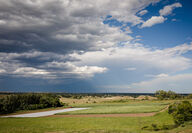
Farming and ranching in the urban interface has unique challenges and opportunities. Boulder County, with roughly one-third of its 740 square miles (157,000 acres of 470,000 acres) on the plains, is home to 330,758 people and 107,043 acres of farms and ranches. This population density is buffered by both land use policies that contain the growth of cities and prevent unincorporated lands from being subdivided into parcels smaller than 35 acres, and by progressive land conservation programs by...
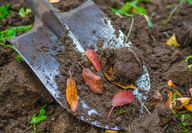
Our clocks have sprung forward, longer days are upon us and warmer weather is on the horizon. Of course, we should be prepared to get blasted with more cold days and hopefully some snow, but we are well on our way to the spring gardening season. What does this look like for you and your outdoor spaces? Are you itching to get out and start clearing and cleaning up your garden beds in preparation for things to green up? If so, I can relate, but I'm here to say, don't do it! It's important to know...
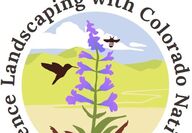
What's the buzz about native plants? Find out at the 7th Annual Landscaping with Colorado Native Plants Conference! Experts in horticulture, ecology and landscape design share how to plan, plant and maintain beautiful and biodiverse native landscapes from the ground up. To enable participation statewide, this year's conference is online. Recordings of the speakers' presentations will be available for registrants to view after the event as well. The conference runs from 9 a.m. - 4 p.m. on...
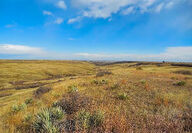
According to the National Oceanic and Atmospheric Administration (NOAA), the latest first measurable snowfall (0.5") in Boulder was November 26, 1910 (although the records prior to 1948 are suspect). The latest first snowfall since 1948 (considered to be more accurate) is November 17, 2016. Either way we are past both dates. On average, Boulder receives 18 inches of precipitation per year. While Boulder has received 20.2" of precipitation thanks to a very wet 2021 spring, since August, Boulder...
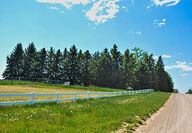
As we head into the windier and hopefully snowier time of year, now is the time to make plans to plant a windbreak on your small acreage next spring. Windbreaks make your yard less windy, prevent snow drifts across the driveway and in corrals, prevent soil erosion, provide protection and shade for your livestock and provide wildlife habitat. In our area, windbreaks should be planted on the north and west sides of a property to block our winter winds. The principle behind windbreaks is the trees...
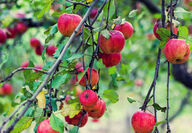
Along with all the garden bounty that comes this time of year is one of my favorites, the apple. It is a crop that has deep roots here along the Front Range. Young and mature apple trees can be found in backyards, along old ditches, and in managed orchards. Apple orchards took off in the area in the late 1800s and for a time there was a thriving industry here. While those days are gone and the industry has largely moved to the Northwest (Washington state is the largest apple growing region in...
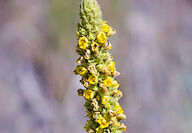
What characteristics make weeds so successful with the ability to annoy us and resist our attempts to eliminate them from our properties? Weeds are non-native plants that have been brought here either intentionally as a landscape or food plant, or unintentionally as a contaminant in crop seed, in the gut system of animals, or in some other material. Because weeds are not native, they do not have any natural controls to keep them in check and they become invasive. Scientists have worked to find...
Are you ready to see behind the curtain and understand more about area produce farms? On Aug. 28, join in a bus tour of produce farms in Boulder and Adams Counties ranging from two – 2000 acres, direct to consumer and wholesale, and hear what it takes to help them thrive. CSU Extension, in partnership with Colorado Fruit and Vegetable Growers Association, has queued up a tour of four farms for a full Saturday of exploration. This tour is funded by grant dollars through a Specialty Crops Block Grant award from the Colorado Department of A...
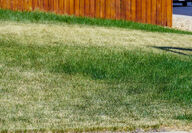
What a difference a high pressure ridge makes. After a cool, rainy warmup to the season, gardeners are shocked to face scorching hot temperatures that broil our gardens and lawns. The high pressure system parked overhead is pulling the heat up from the south and there is nothing our plants can do but weather the heat. When the heat switched on, lawns stressed, with Kentucky Bluegrass going dormant to escape the near-hundred degree temperatures. Brown spots in yards are blooming faster than the...
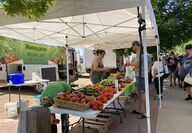
For many of us, the post-Covid return to normal is still largely an aspiration. While most of Colorado is enjoying not having to wear masks in public places and finding socializing readily available, parts of society are grappling with changes in workforce, supply chains, and certainty of plans for "normal" when looking into the future. In May, I outlined how a larger than average snowpack (163% of 30-year snow water equivalent) was a welcome departure from normal for farmers in the South...
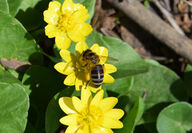
We are already deep into June, but did you know that this month is Colorado Pollinator Month? And June 21-27 is National Pollinator Week? The City of Boulder celebrates Pollinator Appreciation Month in September, and countless other communities have their own festivals and events to raise awareness about the importance of pollinators. What is pollination and why is it important? Simply put, it is the transfer of pollen grains from the male anther of a flower to the female stigma of another...
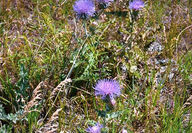
When we see a plant and it is prickly, we automatically assume it is a thistle and therefore it is a bad plant. The Oxford Dictionary defines a thistle as "a widely distributed herbaceous plant of the daisy family, which typically has a prickly stem and leaves and rounded heads of purple flowers." There are 20 thistles native to Colorado and they are desirable plants? Thistles are in the Asteraceae, sunflower (daisy) family. So, resist the urge to pull every prickly plant you see on your...
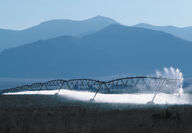
In farming and ranching, much depends on the weather. And unlike a business with a roof (apologies to our controlled environment producers who can be immune) there are myriad weather factors our food, feed and fiber producers cannot control. Much of this ongoing column calls out this stark reality, so that readers insulated from it can get reconnected to what it takes to produce and sell food into our modern food system. In this installment, water rules, as it so often does in this semi-arid...
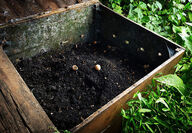
On a recent sunny afternoon, I was talking with Niwot resident Alicia Livitt about compost for her garden. She was explaining that she would like a compost pile, but didn't really see where one would fit in her landscape and as an amateur gardener, the whole idea of it seems intimidating. This is an understandable and common sentiment. In the October 2020 article Home Composting by Sharon Bokan, she breaks down how to compost your own yard and garden waste in easy to follow steps. For anyone...
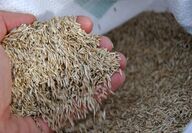
We are told to read labels and instructions on just about everything we purchase,whether it is a new cell phone, food or pesticide. This is also the case with seed. If you purchase your seed from a reputable dealer, then you can be assured that the information on the package and the seed in the package meets certain requirements. You may have noticed the information on the seed bag, but didn't know what it meant. State law, federal law and either Association of Official Seed Analysts (AOSA) or...

You'll know when they're back by their drumming on your roof vents or the side of your house (I spotted the first one this year on Feb. 22 pecking a telephone pole). You may love them or hate them when they cause damage to your house. Northern flickers, also known as woodpeckers, are migratory birds that winter in the southern United States and arrive back here around March. What can you do about them? As a migratory bird, they are protected under the Migratory Bird Treaty Act of 1918. The Act...

One thing that many gardeners have in common is, they pay attention to weather. Especially precipitation levels here in the semi-arid west. So, it may come as no surprise to some of you that according to the U.S. Drought Monitor (https://droughtmonitor.unl.edu/), here, along the Front Range, we are currently experiencing drought conditions and in fact are in the 'Severe Drought' category. While "drought is a normal part of the climate cycle", it is also characterized as "a slow-moving hazard"...
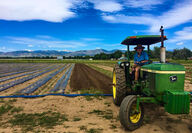
Agriculture in Colorado can be in a state of challenging realities. Like all spots on terrestrial earth, we are surrounded by abundant nitrogen in the air, but we are unable to get this essential nutrient to crops without significant human intervention. Some 70% of the snowpack melts out in 90 days, leaving farmers on the semi-arid plains in search of water from rivers, creeks, aquifers and the sky to replenish soil moisture. Many Coloradans enthusiastically demand local food, yet county, state...
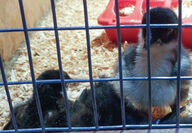
You decided that you want to keep a few chickens so that your family has fresh eggs. You have all the equipment to house and feed them, but how do you keep them healthy? The first step which should be done prior to purchasing your chicks is to identify a local veterinarian who is familiar with and can treat chicken health issues. While it is unlikely that you'll need their help, it is good to have one identified as not all veterinarians treat chickens. The next step is to keep their feeder,...

It seems the old Chinese adage (curse?), "May you be born in interesting times," continues to play on from 2020 into 2021. Atop Covid-19, business pivots from farmers markets and foodservice accounts to increased CSA and online sales. Working outdoors in very smoky conditions last summer/fall, and doing their best to keep farm workers safe from both, Boulder County farmers are now staring down a 2021 snowpack in the Indian Peaks portion of the South Platte River watershed that varies from...
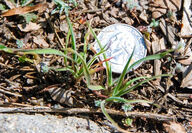
While this may not seem to be the best time of year for weed management, it is a good time to start dealing with winter annual and biennial weeds and planning your strategy for the 2021 growing season. Winter annual weeds can germinate in the late summer, fall or winter, over winter and start actively growing again in the spring. Winter annual weeds finish growing and produce seed by early summer. Biennial weeds start growing in the summer or fall, over winter and produce seeds the following...

With the change in tenants at 1600 Pennsylvania Avenue, there's a groundswell of interest in one thing close to gardener's hearts. Quiet and not-so-quiet news articles are calling for the tackling of a task that, while not a matter of national security, is something the green-thumb faction is following closely. Occupants of the White House have free rein to make changes to the grounds, provided it doesn't alarm the Secret Service. They're a skittish bunch, for good reason. Though there are...
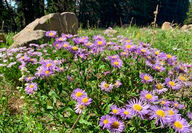
Gardening with native plants is not a new concept. There are people who have been doing it for a long time, but it's not what I would call, mainstream. It is, however, gaining in popularity as people discover that a native plant garden provides much more than just water savings. Gardeners of all types from patio planters to commercial properties can play an important role in helping to increase pollinator and wildlife habitat and bolster biodiversity. Our urban and suburban landscapes can serve...
When did our world become one of so much risk management? Was it always this way but now the risks are shared among so many? A year of masks and Covid bubbles with a summer and fall of wildfire smoke, we are suddenly, hopefully more united in common foes and the strategies to deal with their impacts. As a subset of the US population, farmers and ranchers are notoriously, ruggedly independent as business operators. Maybe it is the scarcity of the arid ecosystem in the west, but it seems even more so in Colorado than their East coast...
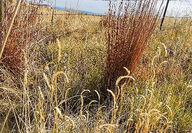
Native grasses can be used in a landscape either as specimen plants, or for a bluegrass lawn alternative or to create a native prairie landscape. While a native grass lawn or prairie landscape is not for everyone, they work well on larger lot sizes and acreages. Native grasses that are normally used for alternative lawns are blue grama, buffalograss and fescues. They have lower growth habits which makes them desirable for those who don't like to mow often. Other grasses that can be used to...
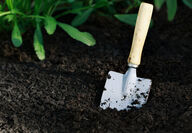
Once holiday celebrations wrap up and 2020 comes to a close (hooray), it is time to start thinking about the new year. Are you someone who makes New Year's resolutions? For a lot of people, things like getting more exercise or keeping in better touch with loved ones tend to top the list. What about gardening resolutions? Whether you're new to gardening (welcome!) or a veteran with a proven green thumb, here are a few suggestions for your New Year's resolution list. 1. Try something new. If you...
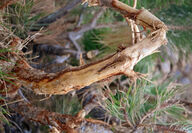
In previous articles, I have written about the damage rodents and small mammals cause to your landscape plants, but larger mammals such as deer, elk and bobcats can damage landscape plants too. Deer and moose are browsers, meaning they predominantly eat forbs (broadleaf plants) and shrubs and trees but also graze grasses. Elk are mainly grazers but browse forbs and shrubs when grass is lacking or unavailable. Fruit trees such as apples are a favorite browse. These mammals can also use your...
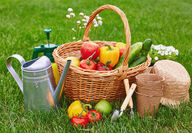
From simple pleasures to outright splurges, the season for giving is upon us. As you rush to buy gifts for your gardeners, stop to consider what type of green thumb they have. This will help you narrow down your choices in making that small purchase go a long way to happiness. Experienced gardeners are a little harder to shop for since we have the basics. But that doesn't mean we don't like a load of manure. A big pile of poo would have appalled my mother, but I think it's a very sweet gesture....
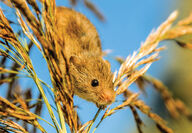
As the weather cools and bears are headed to hibernation, mice may be seeking the warmth of your home and voles may be setting up their homes in your landscaping. How do you keep these unwanted visitors out of your house and protect your landscape plants? Start inside the house by storing food in rodent proof containers. Store cereal, rice, flour, noodles, chips and other foods in either metal or heavy plastic containers with tight lids. Immediately clean up any food spills. Keep the area where...

Earlier this summer I wrote about June being Colorado Pollinator Month. The City of Boulder celebrates Pollinator Appreciation Month in September. More and more people are becoming aware of the important role these insects (and birds and mammals) play in everything from the food we eat, to the clothes we wear. Pollinator gardens are being planted in neighborhoods and researchers spend their careers learning about every facet of these fascinating creatures. Whether you are already immersed in thi...
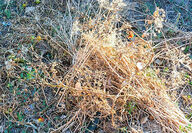
Special to the Courier Trees are beginning to lose their leaves, your garden plants are done and if you don't have access to commercial composting pickup, you may want to try composting them in your yard. Composting is not as difficult or as time consuming as you think. Composting provides organic material to improve soil and reduce wastes that reach landfills by 20- to 30% or more. You do not need a fancy compost bin unless your homeowner's association has a covenant requiring one. A simple...
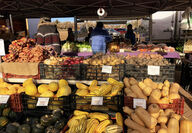
It is a grand understatement to assert that life has been an interesting ride for 2020. Our food system and consumer behaviors during this time have made it through some challenging adjustments and still many Americans are food insecure. As summer fire and smoke abruptly gave way to September freeze advisories, it appeared our Northern Colorado outdoor growing season was coming to an end Sept. 9. But Mother Nature bats last and only low-lying fields suffered cold damage. This was a seasonal fake...
Agricultural risk is an interesting concept to non-farmers. Imagine you are self-employed, and your business is not only highly dependent on the weather, it can be crushed by it. People have various mental models of what they think your business is like, the skills needed to succeed, what the challenges and rewards are for producing food, and how you remain profitable, including where and how you should allocate your resources. While the scientific and policy communities increasingly look to agriculture as a solution to climate change,...
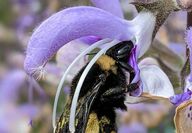
As the heat sets in and our early spring flowers fade and give way to summer blooms and vegetable gardens, you might have pollination on your mind. If not, maybe you should! Simply put, pollination is the transfer of pollen from one flower to another flower of the same species. Flowers need to be pollinated to complete their life cycle by producing fruit and setting seed. This is particularly important if you're growing fruits and vegetables, but also important at a much larger scale for nuts,...

Eating at home more lately? You are not alone. Consumer food demand has pivoted abruptly over the past two months from about 50% of meals consumed outside of the home to virtually none. My experiences early in this shift revealed household purchases stripping local supermarket inventories, leaving shelves bare of produce, meat, eggs, paper products, etc. Trade associations and supply chain experts note there is no major lack of US food supply, aside from some slowdown in meatpacking due to...